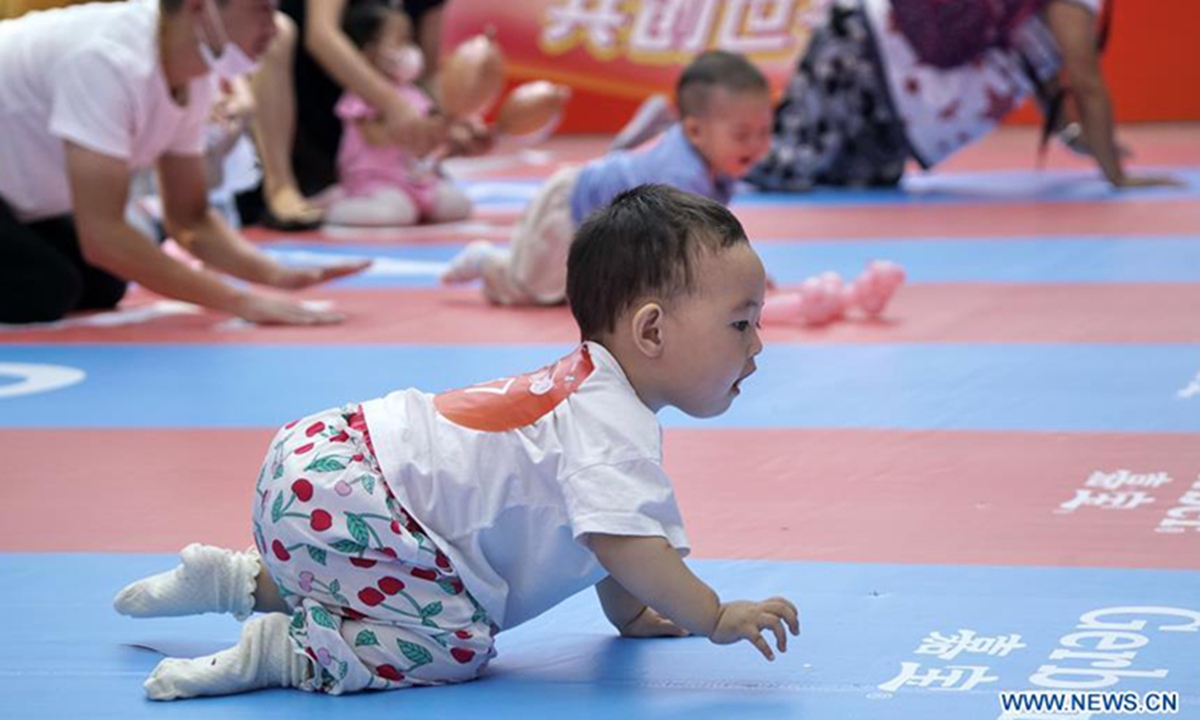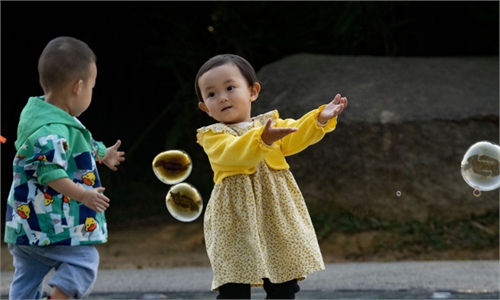
Babies participate in a baby crawling contest at a shopping center in Daxing District, Beijing, capital of China, Sept. 13, 2020. (Xinhua/Li Xin)
Multiple places across China such as Hangzhou in East China's Zhejiang Province have introduced or stepped up financial incentives, including a one-off subsidy, to families with a third child, to encourage couples to have more babies.
Hangzhou plans to hand out a one-off subsidy of 20,000 yuan ($2,902) to local couples with a third child and a 5,000 yuan subsidy to those with a second child, following new local population data and research that showed that local couples have low intentions to have more children, the Zhejiang Daily reported on Wednesday.
Hangzhou's permanent population reached 12.37 million as of the end of 2022. The proportion of second children among newborns peaked at 52.11 percent in 2017 and declined year-by-year to 35.94 percent in 2022.
The Hangzhou Health Commission aims to raise local couples' childbirth willingness by reducing their economic pressure to promote long-term and balanced population development.
Wenzhou, formerly the most populous city in Zhejiang, is soliciting public opinion on child subsidies. The city plans to offer a one-off subsidy of 3,000 yuan for the third child, 2,000 yuan for the second and 1,000 yuan for the first.
Many localities have rolled out economic incentives since the beginning of this year to bolster population growth rates.
Shenyang in Northeast China's Liaoning Province will offer subsidies of 500 yuan per month to local families with a third child until the child reaches 3 years old, as part of a plan to optimize the population structure and improve the quality of the population by 2025.
Other areas like Chengdu and Jinan also launched support policies for second and third children.
The effect of economic incentives still depends on couples' willingness to have children, Song Jian, a demographer at the Center for Population and Development Studies of the Renmin University of China, told the Global Times on Thursday.
The impact of incentives is decided by whether they match couples' practical demands, Song said.
Song emphasized other policies and services such as nursery services and housing subsidies to ease the burdens of families with multiple children.
The population in the Chinese mainland in 2022 fell for the first time in 61 years, decreasing by 850,000 year-on-year to 1.4118 billion, according to data released by the National Bureau of Statistics in January.



